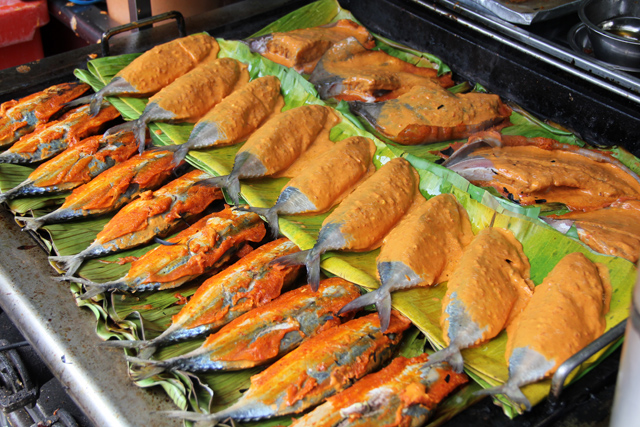Introduction: Malaysia’s Coastal and Fishing Communities
Malaysia is a diverse country with a rich cultural heritage. Its cuisine is a reflection of its diverse population, which includes various ethnic groups such as Malays, Chinese, and Indians. The country is known for its flavorful dishes, which are a blend of various spices, herbs, and ingredients. One of the significant influences on Malaysian cuisine comes from its coastal and fishing communities. The seafood-rich coastal areas have played a vital role in shaping the country’s food culture.
Overview of Malaysian Cuisine
Malaysia’s cuisine is a mixture of different culinary traditions, including Malay, Chinese, and Indian. The country’s cuisine features a wide range of dishes that are famous for their unique blend of flavors and aromas. Malaysian cuisine is known for its use of spices such as turmeric, coriander, cumin, and fenugreek. The cuisine also includes various herbs such as lemongrass, pandan leaves, and galangal. Malaysian dishes are often a combination of spicy, sweet, and sour flavors, which give them a unique taste.
The Significance of Coastal and Fishing Communities
The coastal and fishing communities in Malaysia have a significant influence on the country’s food culture. The use of seafood in Malaysian cuisine is widespread, and coastal areas have been at the forefront of this tradition. The abundance of fresh seafood in Malaysia’s coastal areas has resulted in the creation of several seafood-based dishes, which are now popular throughout the country. Coastal and fishing communities have also introduced unique cooking techniques and methods, such as grilling and steaming, which are now an integral part of Malaysian cuisine.
The Use of Seafood in Malaysian Cuisine
Seafood is an essential ingredient in Malaysian cuisine, and it is used in various dishes such as curries, soups, and stir-fries. Some of the popular seafood dishes in Malaysia include chili crab, assam fish, and curry prawns. The coastal regions are known for their grilled seafood, which is often marinated in a blend of spices and herbs, giving it a unique flavor. Malaysian cuisine also features various seafood-based snacks, such as fish crackers and shrimp fritters.
Regional Variations in Coastal and Fishing Communities
The coastal and fishing communities in Malaysia have a significant influence on regional variations in Malaysian cuisine. For instance, the East Coast region is known for its use of fish in dishes such as keropok lekor and nasi dagang, while the West Coast region is famous for its grilled fish and seafood curries. The state of Sabah, located on the northern coast of Borneo island, is known for its seafood-based cuisine, which includes dishes such as hinava, a raw fish salad.
Conclusion: The Impact of Coastal and Fishing Communities on Malaysian Cuisine
In conclusion, Malaysia’s coastal and fishing communities have had a significant impact on the country’s cuisine. The abundant seafood resources in coastal areas have resulted in the creation of several unique seafood-based dishes, which are now an integral part of Malaysian cuisine. The coastal and fishing communities have also introduced various cooking techniques and methods, which have added to the diverse range of flavors and aromas in Malaysian cuisine. Overall, Malaysia’s coastal and fishing communities have played a crucial role in shaping the country’s cuisine and food culture.

